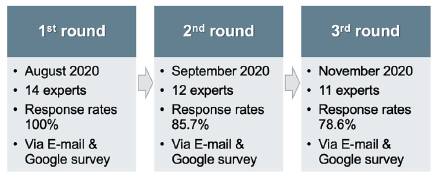Abstract
The purpose of this study is to discuss information literacy in mathematics education by comparatively analyzing mathematics education experts’ perception of information processing and information literacy in mathematics education. We collected mathematics education experts’ opinions using the modified Delphi method and focus group interviews, then analyzed their responses with an analytic framework through a constant comparative method. Even though we used different methods, we could compare their perceptions under the common themes. The findings are in three-folds. First, most experts focused only on the use of technological tools or statistics as a way of developing information literacy. In addition, even though mathematics education experts recognize the need for information literacy in mathematics education, their definition and meaning of information literacy somehow varied. Secondly, teachers as practitioners emphasized social competency which could be developed through information literacy. Thirdly, they asked for concrete and systematic plans for school practice in order to well develop information literacy in schools. Even though there were some differences in their perception of information literacy in mathematics education in terms of their prior experiences and background, it is very meaningful that there were commonalities among their perceptions which would allow us to find the ways of developing information literacy in mathematics education.
Figures & Tables

Figure 1.Modified Delphi-study procedure
